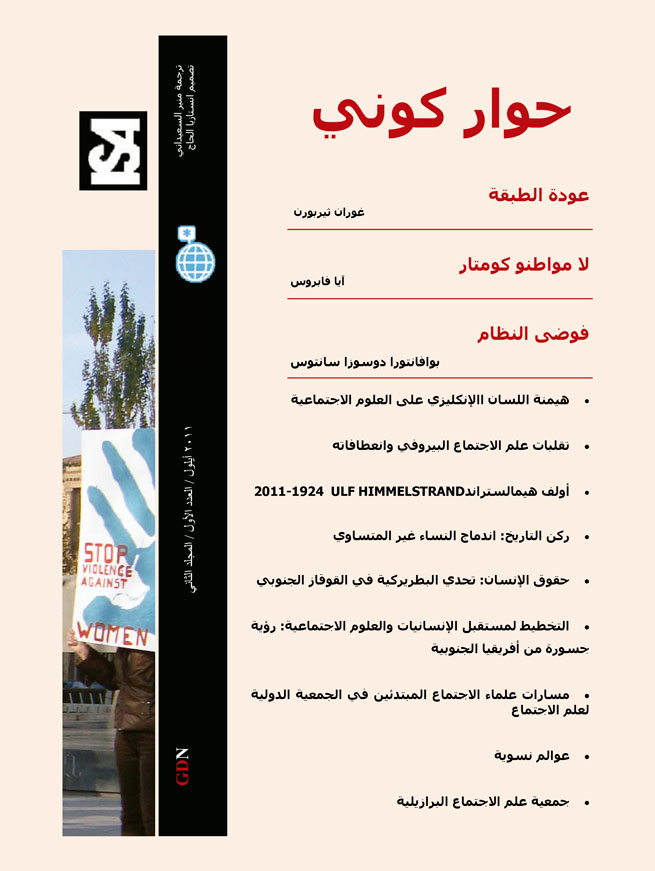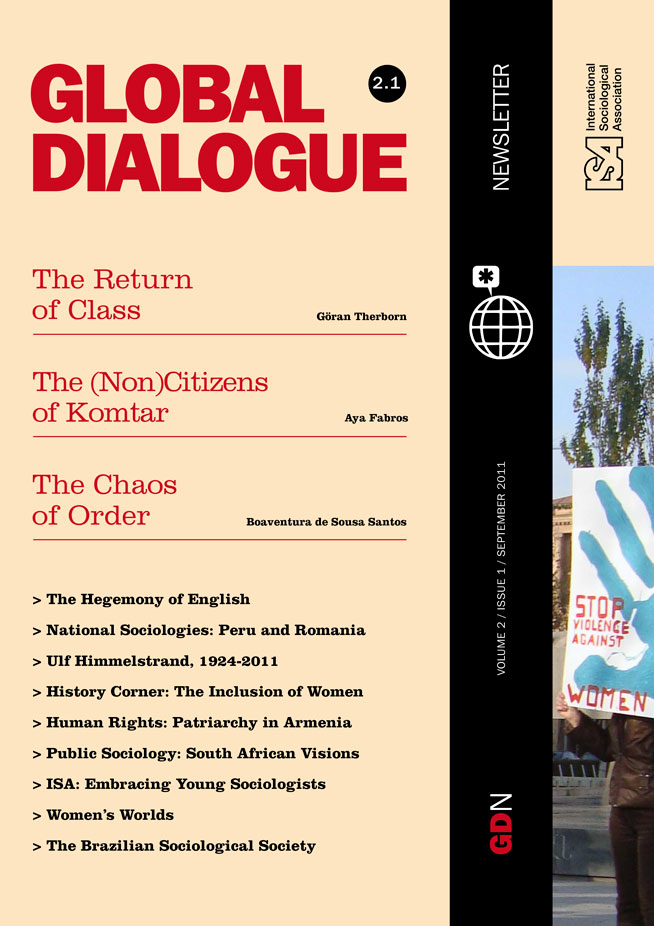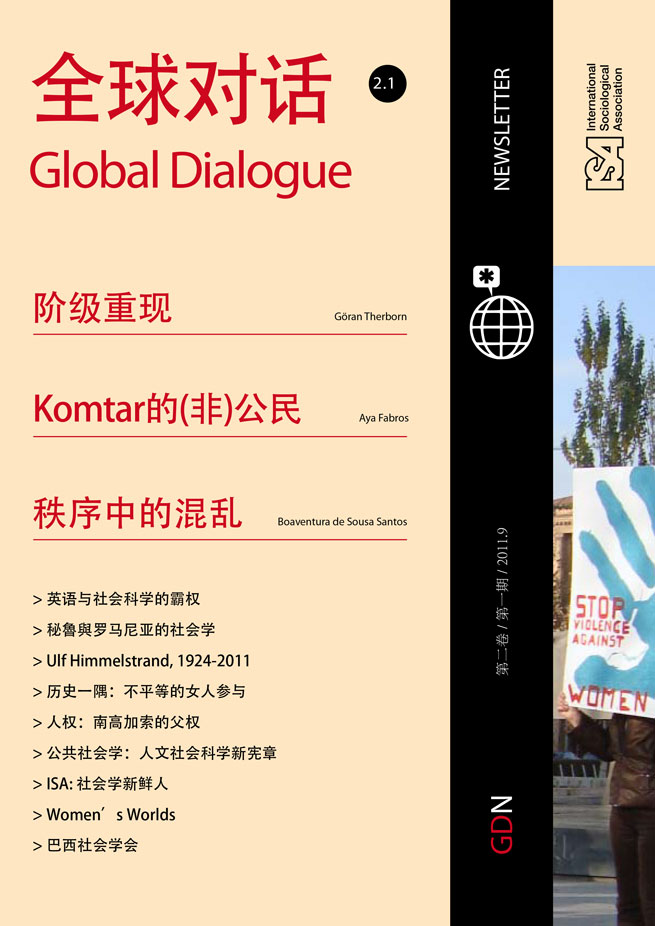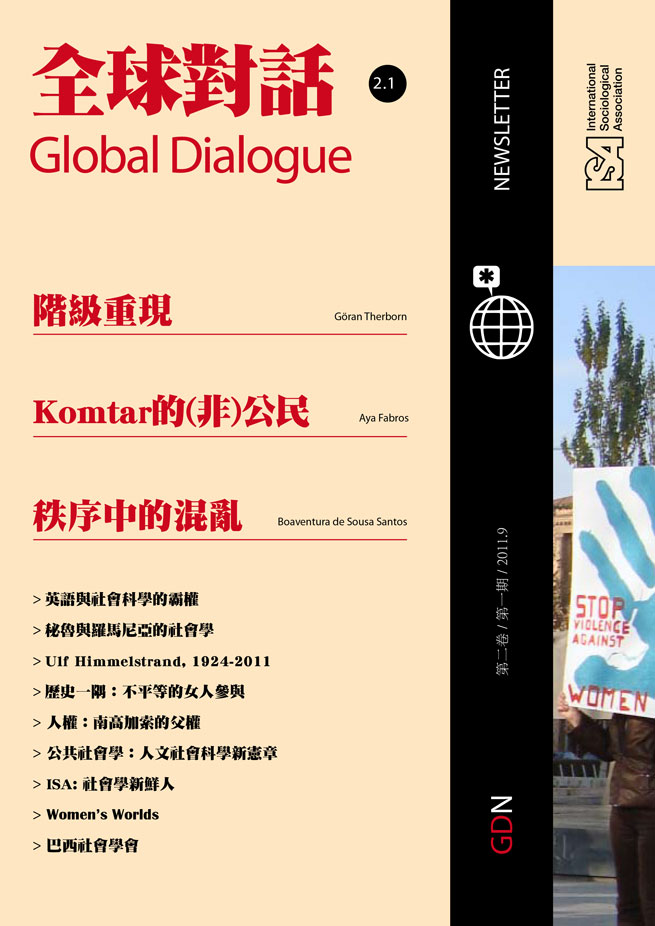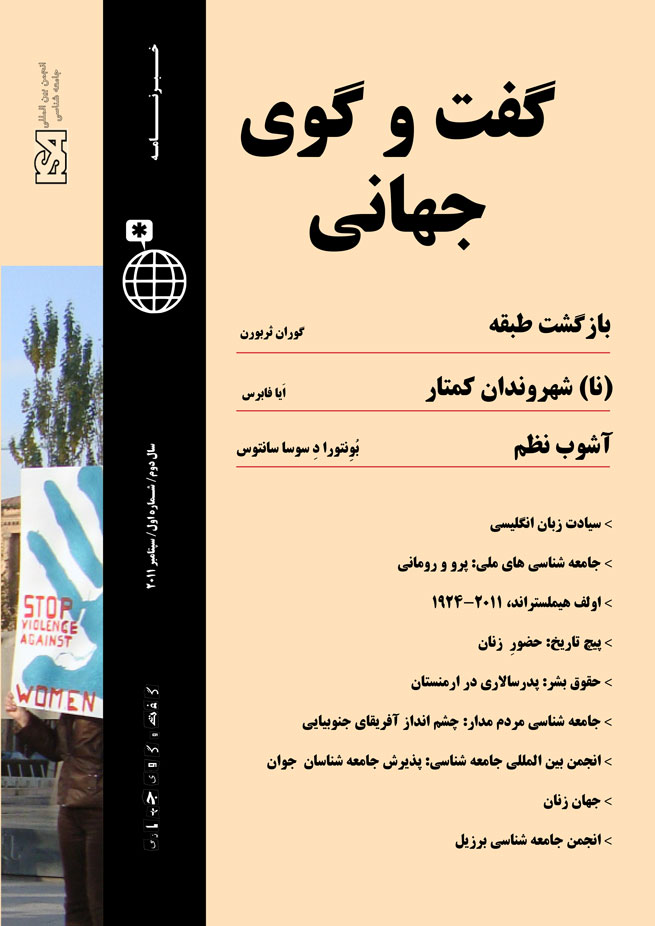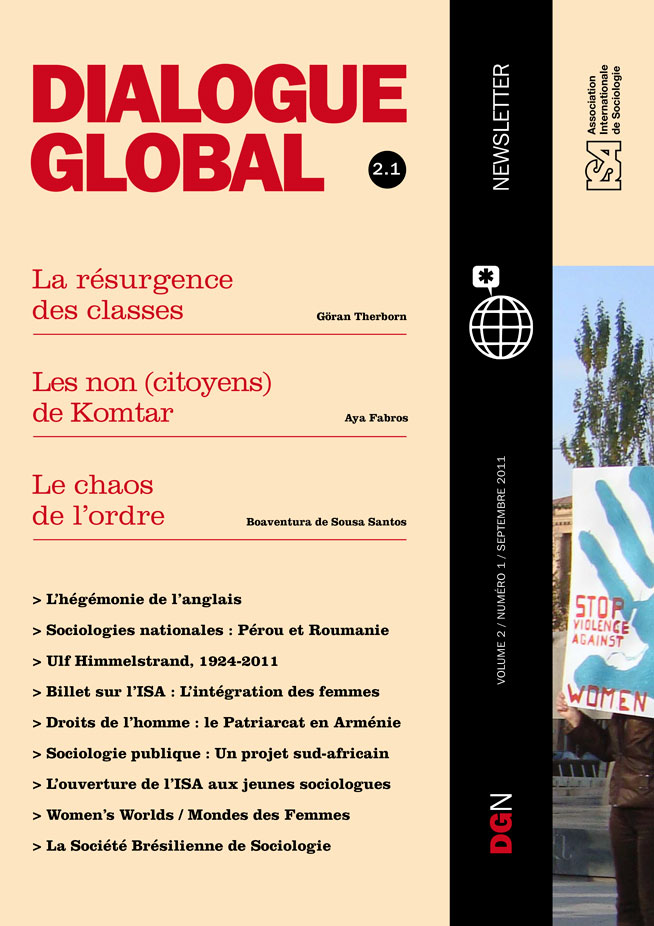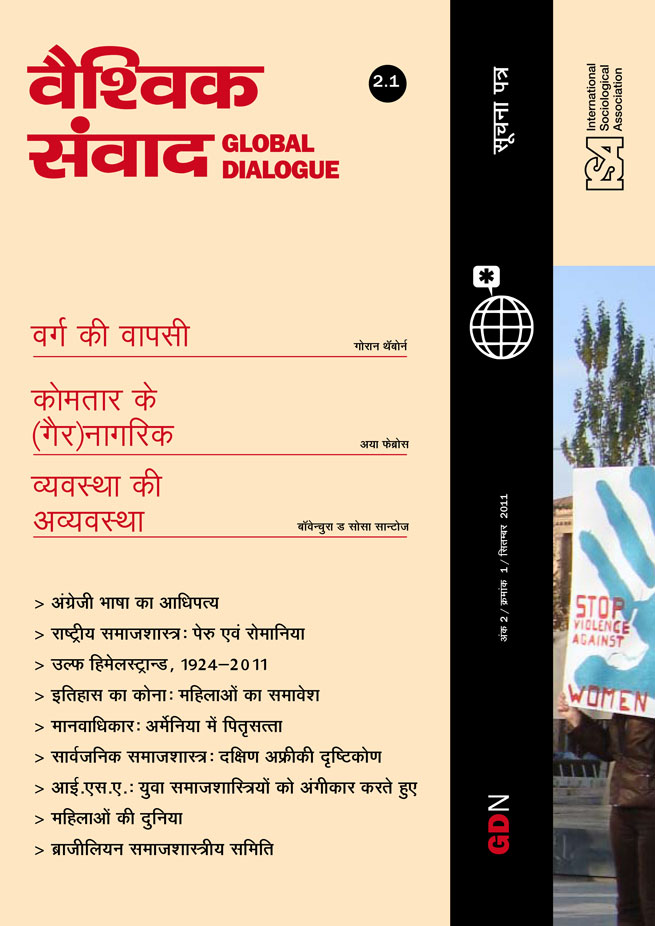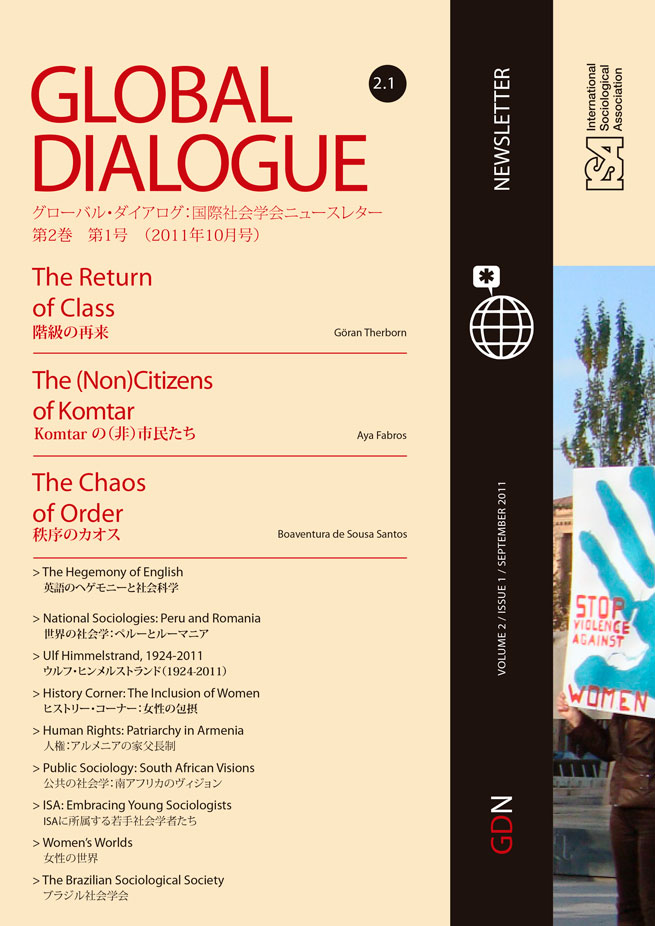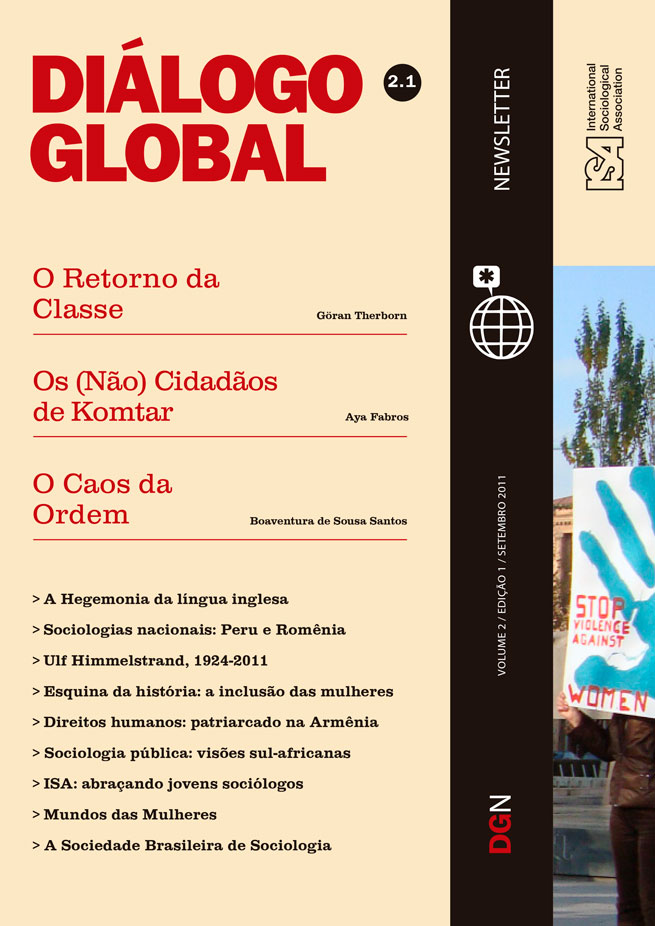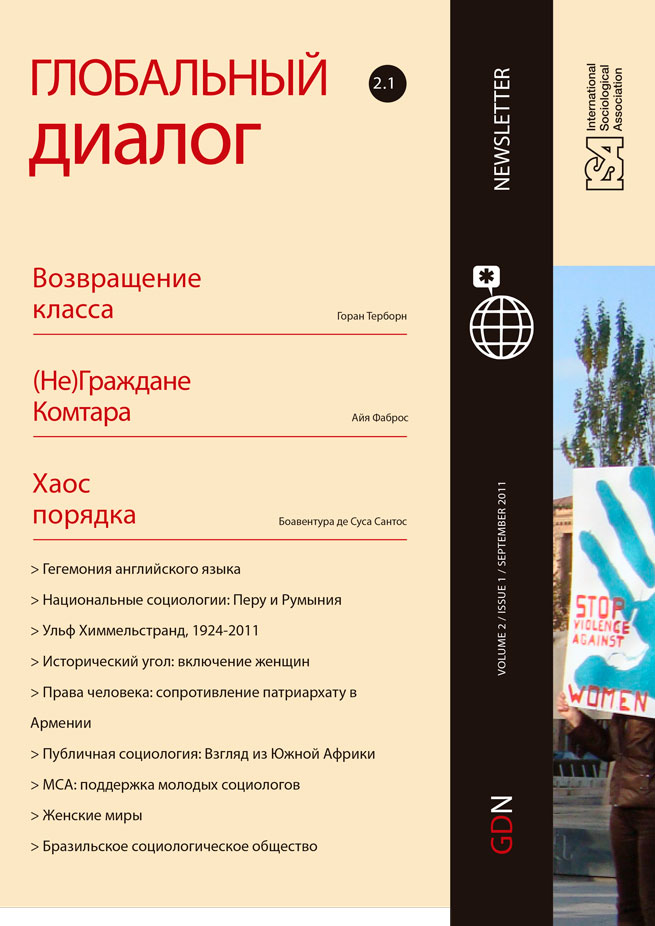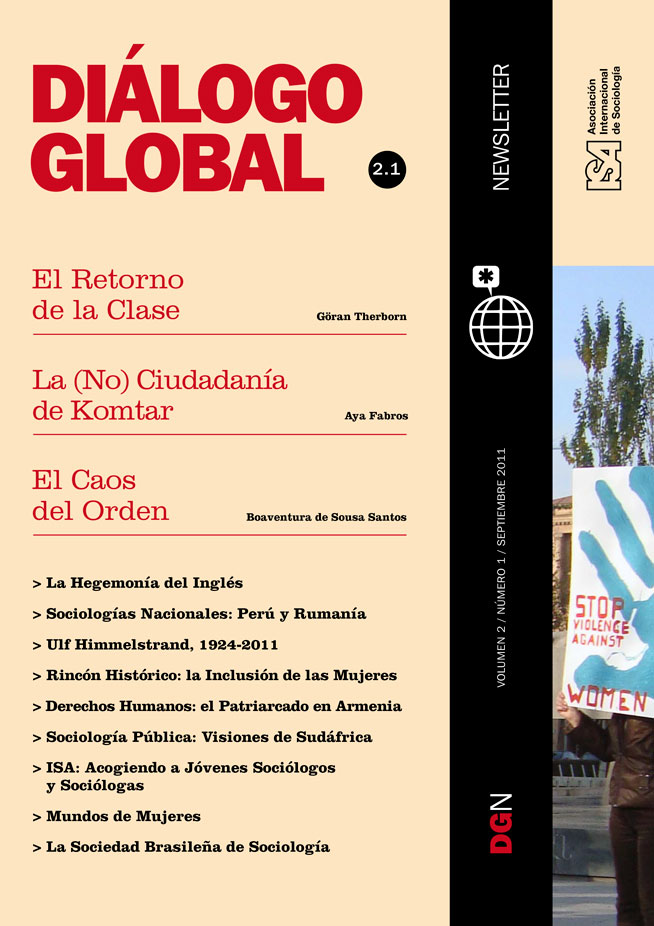Read more about Special Columns
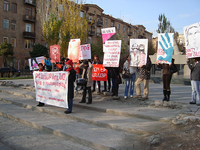
Challenging Patriarchy in the South Caucasus
by Gohar Shahnazaryan
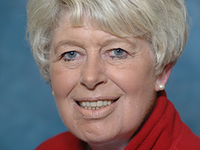
History Corner: The Uneven Inclusion of Women
by Jennifer Platt
September 30, 2011
South African Minister of Higher Education and Training, Blade Nzimande, commissioned sociologists Ari Sitas and Sarah Mosoetsa to chart the future of and make proposals for the Humanities and the Social Sciences. Global Dialogue asked them to summarise their bold vision. The full report and commentary can be found at www.charterforhumanities.co.za.
At a time when the Humanities and Social Sciences are under pressure the world over, South Africa is developing a new Charter for Humanities and Social Sciences (HSS), which promises to invigorate many fields of study in higher education. A task team and reference groups were established by the Department of Higher Education and Training of South Africa. In drafting the Charter we wanted to avoid drowning in the flood of existing problems. We did not want to stop at the redress so necessary to wipe out the legacies of our apartheid past, but to also provide a vision and an architecture that would be adequate for the future.
When the first post-apartheid steps were taken in organizing the pedagogy and research required by the country’s tertiary education system, there was an urgent need to respond to what appeared to be a vital demand: as Manuel Castells had written in the opening to Volume III of The Information Age (1998), “A dynamic, global economy has been constituted around the planet, linking up valuable people and activities from all over the world, while switching off from the networks of power and wealth, people and territories dubbed as irrelevant from the perspective of dominant interests.”
Castells elaborated quite a harrowing narrative of the prospects for those who were condemned to remain in a ‘fourth world’, of the newly excluded, and of the underside of the digital divide. South African leaders considered sinking into the ‘black holes of informational capitalism’ as unthinkable – the need to avoid this fate at all costs was a non-negotiable goal. For many who demanded a move away from Afro-pessimism, the imperative became to save ourselves from ourselves. The consequence was a policy framework that prioritised the sciences and technology, one that attempted to steer the Academy towards powering-up economic growth.
The importance of HSS was downplayed, its scholarship ignored and its contributions marginalised. This is reflected in the government’s bias in its existing funding formula, and the tendency towards what John Higgins has termed a STEM model (Science, Technology, Engineering and Management) for rewarding research productivity – a model that is insensitive to HSS scholarship. There is a vibrant critique of the implications of this singular emphasis just as there is a growing critique of the implications of the ‘corporatisation’ of higher education in the world system as a whole. After our encounters with more than a thousand colleagues in all the institutions of higher learning, and interested parties in government and civil society, we are convinced that Humanities and Social Science scholarship can be a repository of heritage, history, memory and meaning as South Africa strives for peace, prosperity, security and socio-economic well-being.
After careful consideration and analysis we arrived at a series of recommendations based on what we feel are very sound principles. We proposed six key interventions which will occur in two phases – Phase 1: 2012–2015, Phase 2: 2015–2018:
We argue that if the Task Team’s recommendations are implemented, we can envision that by 2030 the Humanities and the Social Sciences will be an epicentre of scholarship, pedagogy, community practice and social responsibility in Africa.
We also envision that our institutions and our academic community will constitute an equal partner in the world’s knowledge production and dissemination alongside centres of excellence in the North and the Global South. Recognizing that tertiary education and research are central to the social and economic advance of all societies, we shall be recommending ways through which our system could be a vital co-agent of change.
All the above – being a dynamic epicentre on the continent, being partners in global initiatives and being a key energy centre for ideas of progress and change – are central to our vision. We are heartened that CODESRIA (The Council for the Development of Social Science Research in Africa) would like to see this process evolving into a Pan-African Charter for the Humanities and the Social Sciences.
Ari Sitas, University of Cape Town, former ISA Vice-President 2002-2006
Sarah Mosoetsa, University of Witwatersrand, South Africa
This issue is not available yet in this language.
Request to be notified when the issue is available in your language.
If you prefer, you can access previous issues available in your language:
